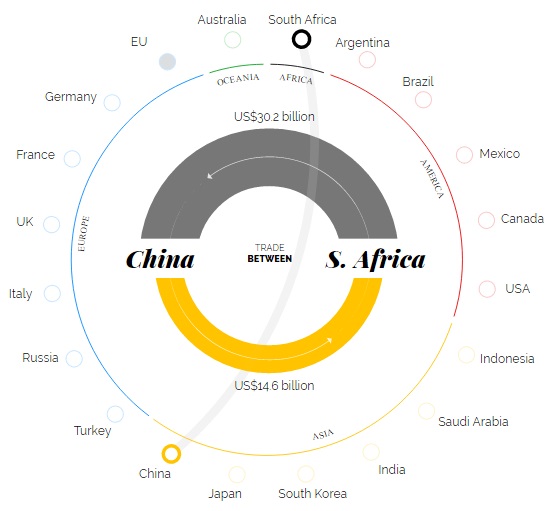News
Why China’s so keen on defending multilateral trade at G20 summit

President Xi Jinping no fan of US-led trade pacts
China has been fighting an uphill battle to revive global interest in a multilateral trade system at the G20 summit in Hangzhou, even though progress on the more selective trade pacts preferred by Washington has stalled.
Beijing’s preference for a multilateral trade system based around the World Trade Organisation is understandable as China is widely regarded as having been the biggest beneficiary of globalised trade in the 15 years since its accession to the WTO. Its gross domestic product is six times bigger than it was in 2001, its per capita GDP (in nominal US dollar terms) has surged from US$1,000 to US$8,000 and its annual merchandise exports have risen 850 per cent.
But workers in advanced economies have been growing disenchanted with the existing state of trade, saying that globalisation has been working against their interests, with jobs lost to emerging markets.
The United States has been trying to rewrite the trade rules by leading talks on a Transatlantic Trade and Investment Partnership (TTIP) with the European Union and the 12-nation Trans-Pacific Partnership Agreement (TPP) in Asia. The TPP, agreed to in February but still awaiting ratification, has been an especially thorny issue because China is excluded from it and Beijing views it as a move to check the expansion of its global influence.
The summit in Hangzhou has presented both sides with a platform to jostle for the upper hand in deciding the future of trade.
President Xi Jinping can barely contain his dislike of the US-led pacts.
“The multilateral trade system is facing a bottleneck problem in development, and regional trade arrangements are mushrooming, leading to fragmentation in trade rules,” Xi said in a speech ahead of the G20 summit.
He said China would try to strengthen the multilateral trade system in Hangzhou.
Trade between G20 nations
The G20 economies moved US$27 trillion worth of products among them in 2014, according to the International Monetary Fund.
Roberto Azevedo, director-general of the Geneva-based WTO, said on the sidelines of the summit that China’s “determination to include trade and investment in the conversation in Hangzhou” was “extremely helpful and important” while “many areas of the world are having a conversation on trade which is not very helpful”.
At the same time, Azevedo said the WTO was “very supportive” of talks such as the TTIP, but “unfortunately” could not help overcome difficulties such as French and German frustration with the US.
He Weiwen, an executive council member at the China Society for WTO Studies, said: “The US said earlier that it can’t let China set the rules, but it seems its own rule-setting isn’t wining hearts as it only sees its own interests.
“The G20 certainly offers a chance to bring a bit of momentum to multilateralism.”
In that context, China played up a trade ministers’ meeting ahead of the G20 summit, in addition to the usual meeting of finance ministers and central bankers.
On the other hand, China is also trying to make progress in investment treaty talks with its two most important economic partners, the US and EU, even though Beijing’s quest for recognition as a market economy under WTO rules is proving a tough battle.
Vice-minister of Commerce Wang Shouwen said in Hangzhou that China had made progress in drawn-out Bilateral Investment Treaty talks with the US. But hopes remain dim, with US business representatives complaining that China’s “negative list”, which limits market access, was too long, and it looks like the talks are going nowhere.
In Europe, China has been criticised for rising domestic protectionism and dumping products churned out as a result of industrial overcapacity.
AEGIS Europe, an alliance of manufacturing industries, said it hoped G20 leaders would tackle “widespread Chinese overproduction and overcapacities”.
“Leaders must support the use of legally robust trade defence instruments that effectively address flagrant and recurrent dumping by Chinese producers across many sectors in global markets,” it said on Friday.
In Asia, China aims to settle trilateral free-trade talks with Japan and South Korea, but that process has also been shadowed by geopolitical tensions.
“China is the beneficiary of free trade, but it needs to counter its neighbours’ suspicion in terms of political security, and such distrust, for example the tension between China and Japan, is the biggest hurdle to China’s push for economic integration in the region,” said Chu Yin, an associate professor at Beijing’s University of International Relations. “It takes time to dispel suspicion and we need patience.”





